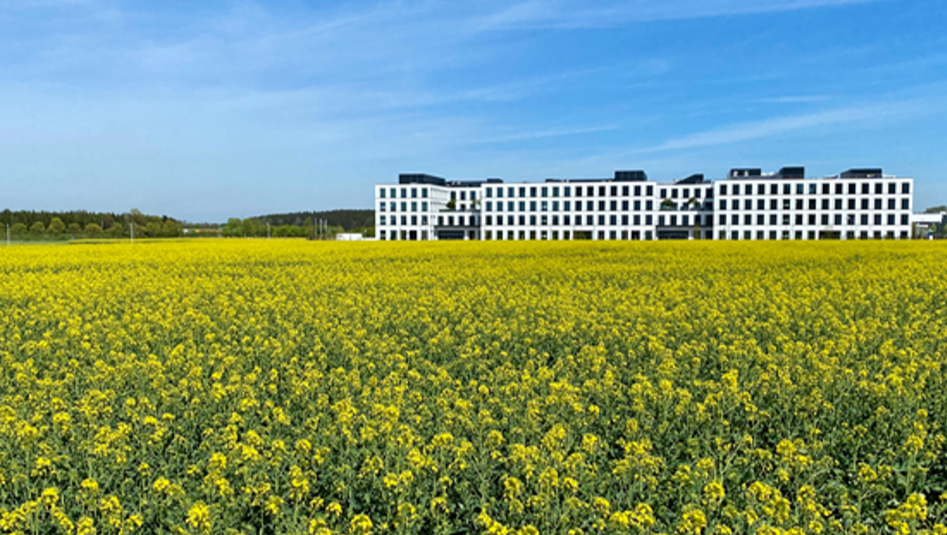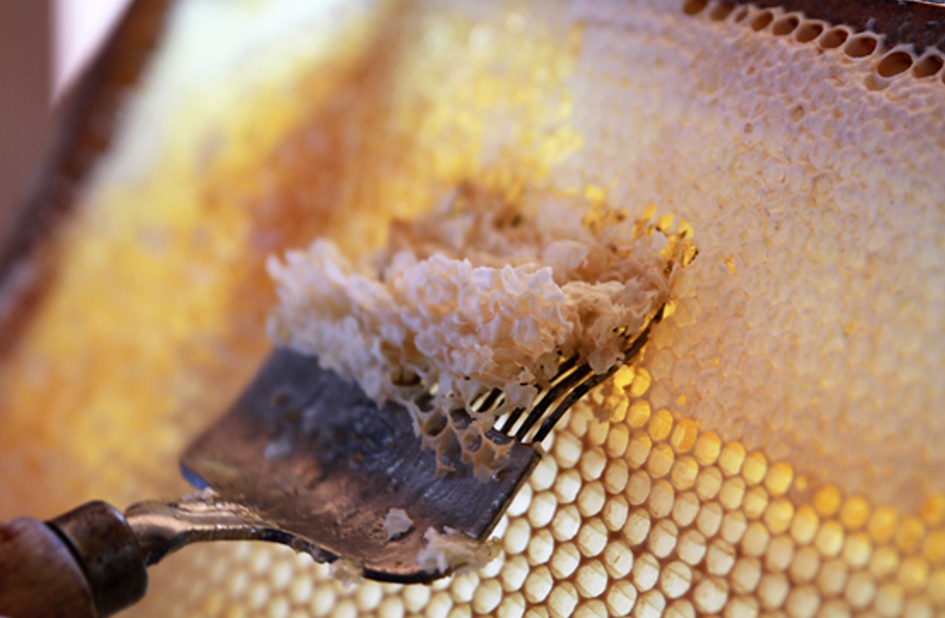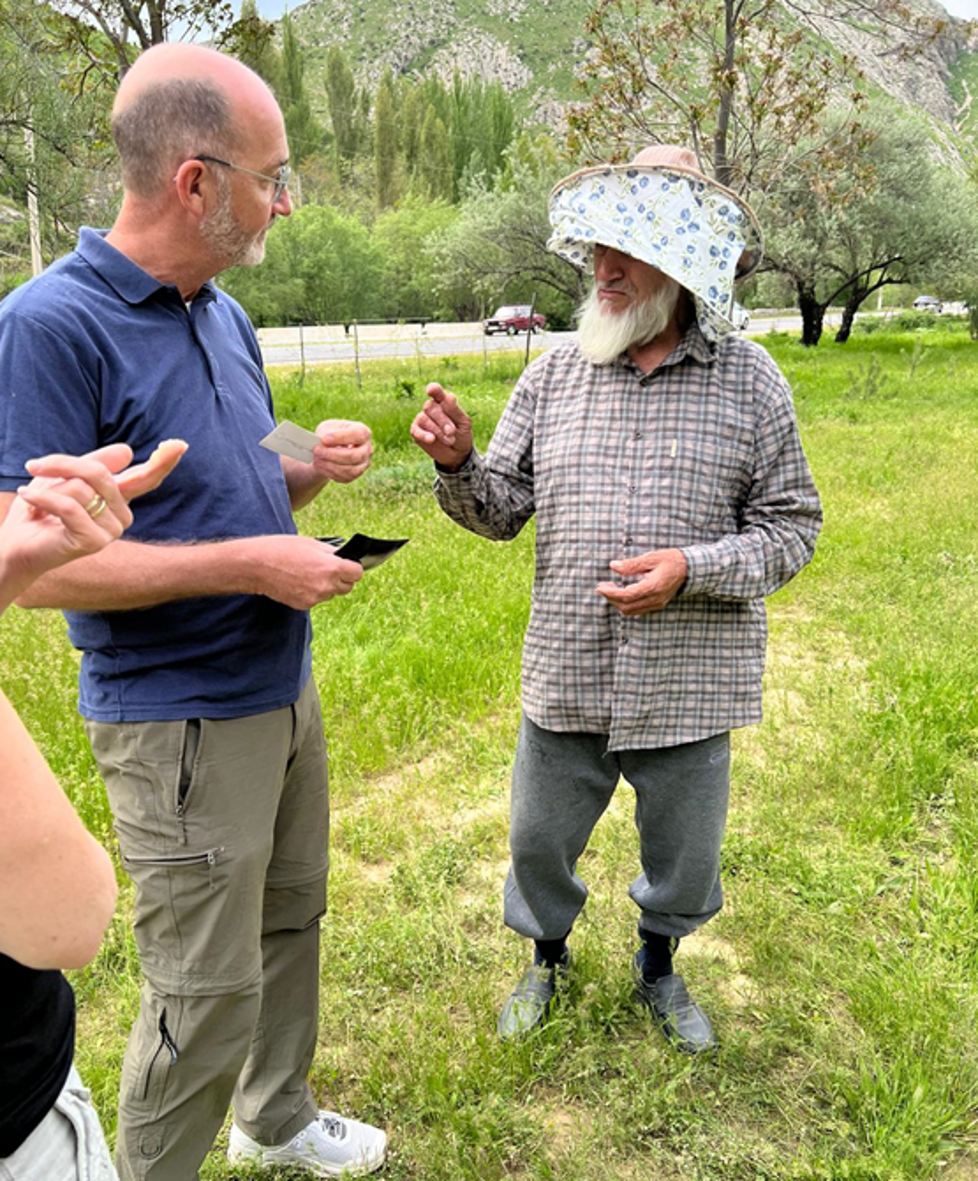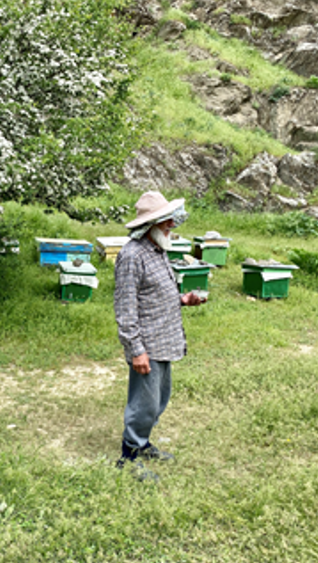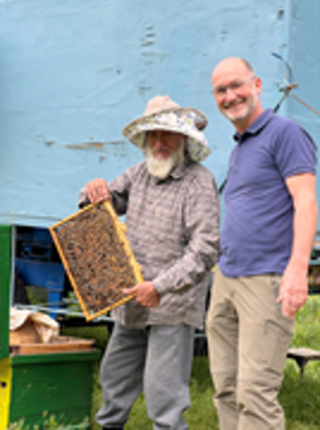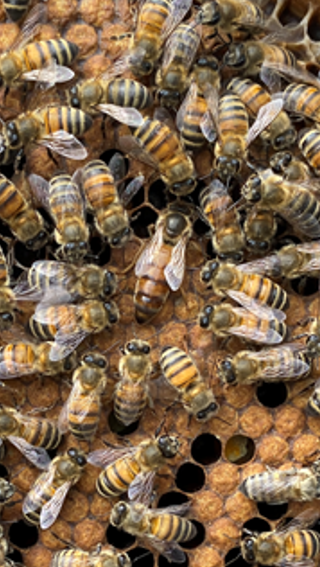Newsletter May:
The first honey 2024 is harvested
Dear bee friends,
Never before have we beekeepers in Germany been able to harvest honey so early in the year. The dandelions had already faded by the beginning of May, heralding the end of spring blossom honey.
Only rapeseed and chestnuts still provided nectar and pollen for the honeybee offspring. A rapeseed field - as long as it is pesticide-free - is of course a paradise for honeybees. As organic rapeseed is a rarity, I always look at a rapeseed field with a smile and a tear in my eye.
After a few rainy days, I harvested the first honey on May 9, 2024. When the honey is ripe, the bees cover it with wax. According to the German honey regulations, honey is ripe when it has a water content of 20%. However, a water content of 18% is better, as stipulated by the German Beekeepers' Association and the Bavarian Beekeepers' Association, for example. The lower the water content, the better the shelf life. As the blossom nectar consists of 80% water, the bees still have a lot to do to dry the honey after collection.
As beekeepers can't actually go on vacation in May due to the weekly swarm inspections that are required, we decided to take our vacation in April.
Thanks to my early swarm anticipation with the formation of offshoots, this worked out quite well despite the flowering period being pushed forward by three weeks. Not a single colony swarmed during this time and the bees still collected a good amount of honey.
Another nice experience was a meeting with a beekeeper in Uzbekistan. Despite the language barrier, I was allowed to taste his fresh honey and he also showed me a colony and a queen
By the way, May 20 is World Bee Day! Have you ever thought about planting a wildflower meadow? I try to mow my garden only 2-3 times a year and leave some wild flowers to provide food for wild bees whenever possible.
I learned from a farmer that it can be a very arduous journey from conventional to organic farming. Nature simply needs time to regenerate, which unfortunately we can hardly afford or want these days.
However, there are still many untouched spots on our planet that need to be protected all the more. In Uzbekistan, we learned about a wonderful project run by GIZ (Deutsche Gesellschaft für Internationale Zusammenarbeit), which is working to preserve the natural landscape and biodiversity there.
I wish you all a wonderful May!
Your beekeeper
Michael Ruhrdorfer

